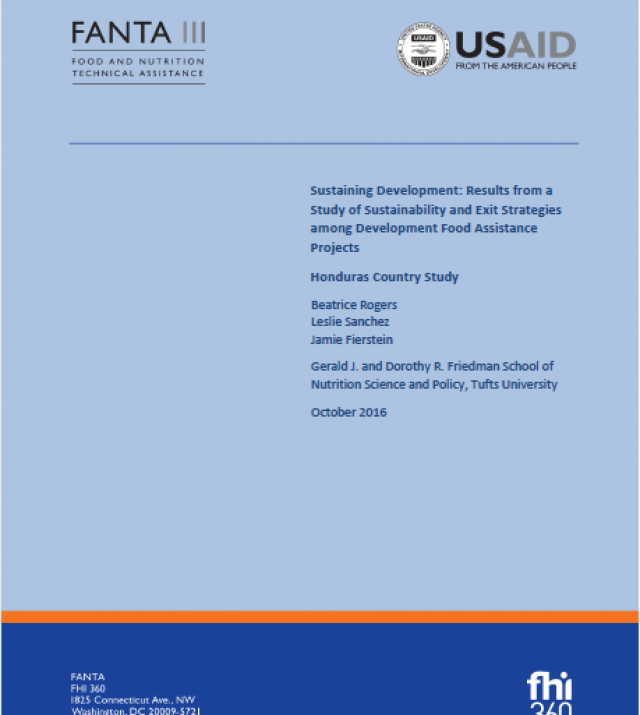
Sustaining Development: Results from a Study of Sustainability and Exit Strategies among Development Food Assistance Projects

To be effective, development projects must result in changes that last beyond the duration of the projects themselves, without the continued provision of external resources to sustain benefits. In 2006, the U.S. Agency for International Development (USAID) Office of Food for Peace (FFP) began requiring that all development food assistance projects include explicit explanations of how projects intend to ensure the sustainability of activities and benefits after each project’s end. From 2009–2015, FFP, through the USAID-funded Food and Nutrition Technical Assistance Project (FANTA), provided support to Tufts University to conduct a multi-country study to assess the effectiveness of FFP-supported projects’ sustainability plans and exit strategies.The objective of the study was to determine what factors enhanced the likelihood of sustained project activities and benefits in order to provide guidance to future FFP development food assistance projects, with implications for other development projects as well, on how to ensure sustainability.
The assessment was conducted between 2009 and 2014 through repeated quantitative and qualitative research interactions in Kenya, Bolivia, Honduras, and India. The country study from Kenya is now available, and studies from the other countries will be added soon.
